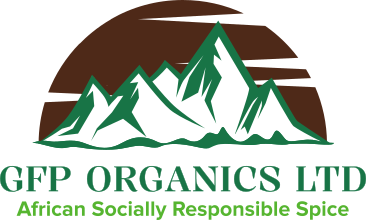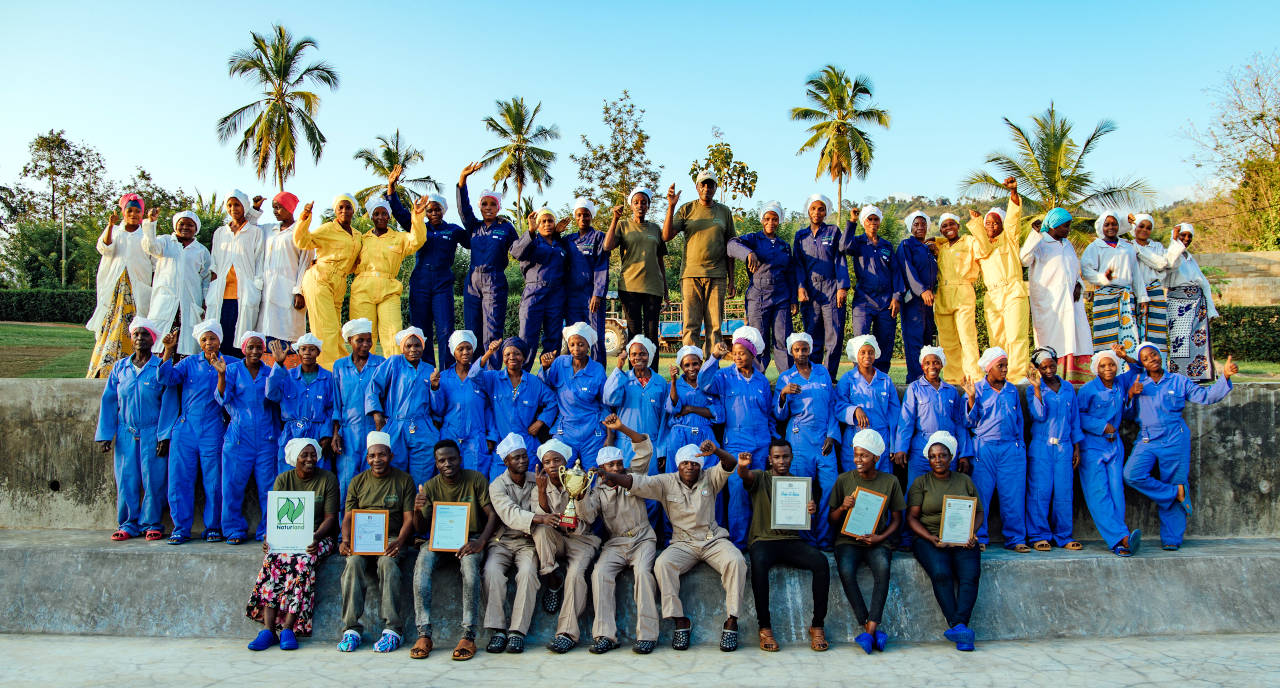
Our Mission
“At GFP, our mission is to honour life by providing the highest quality certified organic spices, herbs, and aromatic plants. We prioritize the health of our customers, uplift farmers' livelihoods, and commit to nurturing the planet with genuine care.“
Our Vision
"Our vision is to be the leading Tanzanian manufacturer and processor of premium organic spices and tea herbs, renowned for delivering quality, safe, and naturally sourced products. We are committed to exceeding customer expectations and meeting both local regulatory and international standards, ensuring excellence in every market we serve."
Our Values
"GFP Organics delivers sustainably grown Tanzanian spices that empower rural communities, particularly women, youth, and farmers, to build lasting livelihoods. By prioritizing social, economic, and environmental sustainability, we ensure that every spice we produce supports the health and well-being of both consumers and the farmers who grow them. With 20 years of organic certification, our robust internal control system guarantees the highest quality and traceability
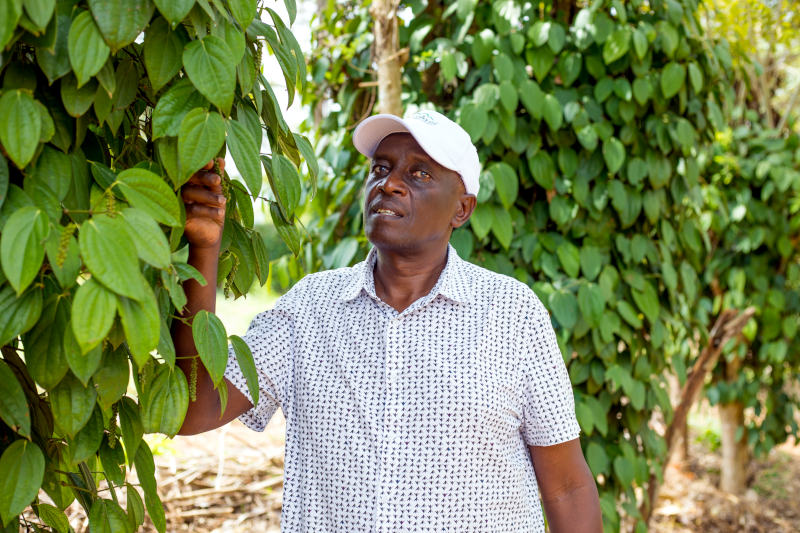
Our History
The director and founder of GFP Organics Ltd (GFP), Cleopa Ayo, loves forests and nature in general. He arrived in East Usambara Mountains for the first time in 1980s a student study Forestry. As part of the forestry courses, students were given all month-long trip in the final year to visit natural forests, forest reserves, forest plantations and mangroves, among other forest areas in Tanzania. That is how Mr. Ayo and his colleagues visited the East Usambara Mountains. In the 1980s, Ayo witnessed the destructed forest patches in East Usambara following massive logging of indigenous trees that started during the colonial era. Mr. Ayo thought of agroforestry as one of the sustainable measures to restore the degraded forest patches and support communities to improve their livelihood. The people in East Usambara (mainly Wasambaa) were very friendly as Ayo also learnt. After the field trip in the area with its biodiversity, forest destruction and friendly people remained in his mind.
After completing studies in Forestry, Mr. Ayo worked for the Government of Tanzania for several years. As a young and energetic forester, He turned his good memories of the richness and friendliness of the people of the Usambara and its biodiversity in reality. Ayo initiated community-based reforestation projects in water catchments by planting perennial spices such as cinnamon, clove, cardamom etc in bare lands (deforested patches).
While implementing his initiatives, Mr. Ayo became aware of the exploitation of underprivileged smallholder spice farmers by middlemen who were engulfing the profit share and would not guarantee a market. Smallholder spice farmers lacked real profits and incentives to grow quality products due to spot market trading operated by middlemen. Generally, it was difficult to get smallholder spice farmers to increase income, improve livelihood and promote sustainable agroforestry practices in the area.
In 2004, Mr. Ayo started to create awareness in different spice farmers on the importance of organic spice farming. Apart from accessing reliable international markets, Mr. Ayo also informed spice farmers of several other advantages of organic farming through climate-smart agriculture techniques such as soil and water conservation, agroforestry, pollination, etc. Luckily in 2005, He managed to register some smallholder farmers in the organic certification scheme. The idea was to make sure smallholder spice farmers produce high quality spice products to fetch higher prices. Mr. Ayo believed that increased prices from reliable international markets will incentivize smallholder spice farmers to support conservation of forests in the area and reduce illegal cutting of trees for timber, poles, charcoal and fuel wood. Presently, there is a total of 1704 hectarages of land under certified organic management.
In 2011, GFP Organics Ltd was registered as an independent company and began exporting under the new name. Previously, (from 2005) the company’s activities were conducted under the umbrella of brother GFP Company, which is based in Arusha. GFP’s main business is producing and marketing natural peanut butter and fruit jams. However, since 2005 operations that later fell under GFP Organics kicked off through advocacy activities in all villages such as creating awareness amongst the farmers and encouraging them to register for the project which led to the birth of GFP Organics Ltd. Complimentary to this, preparations were made to set up processing facilities.
GFP Organics Ltd is a Tanzanian family company that has been committed to organic farming and fair trade since our foundation. Unlike other private companies which operate with the only objective of increasing value for shareholders, GFP Organics it’s like a social enterprise that works applies commercial strategies to improve human and environmental wellbeing and maximize social impact alongside profits for shareholders.
It has not been plain sailing, in the early years when the business had still not taken off, Mr. Ayo remembers. Usually, Mr. Ayo would be up and out of the rented room by 5 am, walking as far as 20 kilometers to project sites, returning home late. Several hick-ups had to be tackled, all coming down to gain the trust of the farmers. Through perseverance, spending time with farmers, paying fair prices and bonuses when trade was going well, success slowly came in sight and today we gather the fruits of hard work, as we picked the pears in former days.
Our Philosophy
GFP delivers sustainably grown Tanzanian spices that protect the environment and promote rural communities, particularly women, youth, and smallholder farmers. By prioritizing social, economic, and environmental sustainability, we ensure that every spice we produce sustains the environments and supports the health and well-being of both consumer and the smallholder spice farmer.
Our Process
We pay attention to every aspect and segment of the spice value chain from raising spice seedlings in nurseries, farm preparation and planting, farm management, harvesting to post-harvest handling. We use our robust internal quality control system to monitor all stages to ensure transparency and guarantee consistency in quality and traceability.
Women dominate the value addition segment of the spice value chain.In our central processing facility, about 90% of the employees are women from villages. Our operations strive to be ecologically friendly, and we actively try to reduce impact on the environment by recycling and reducing of consumables.
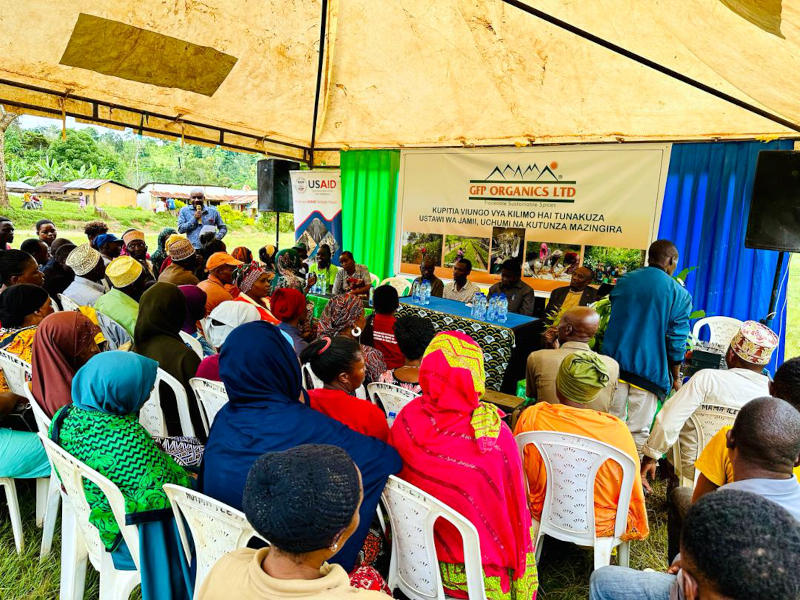
Our Farmers
GFP has contracted smallholder farmers in villages around East Usambara Mountains in an organic production management system. To improve production and sustain the market, GFP that training farmers in organic certification processes to sustain the market and guarantee a higher price is fetched for the produce and also receive bonus. Some advantages of organic production include organic premium and a second payment/ bonus not only when business has been good but always as a motivation. This is done when the crop is exported. GFP has also been guaranteeing smallholder spice farmers pre-payment (on an agreement basis), which makes their lives easier in times of no-income.
GFP has established specific market linkages with organic buyers, so there is a direct connection between buyer and producers, which stimulates quality improvement and upholds social relationships. ‘It puts the farmers on the map’
A reliable spice market enhances the resilience of smallholder farmers to climatic and non-climatic shocks. Increased income from exporting spices enables the smallholder farmers to improve livelihood, adapt to the impact of climate change and reduce dependence on forest products (conserve biodiversity).
Spices apart from creating employment for women and youth, also encourages communities to engage in eco-friendly income generating activities that can promote sustainable conservation efforts in forested montane landscapes.
Supporting smallholder farmers established
Tanzania’s Responsible Farmers Network (TRFN)
GFP is interested to empower smallholder spice farmers to have strengthened bargaining power for their produce. As a way of fostering a sense of sharing and prosperity in each member in the spice value chain plays, GFP provides support for local farmers to be organized in registered TRFN. TRFN brings together smallholder farmers who have participated in various trainings on certified organic farming by GFP.
GFP collaborates with TRFN to ensure that a fair social, environment and economics thriving through organic farming. TRFN is responsible for implementing internal control system (ICS), train new farmers who want to join, offer annual refresher training to the existing members, ensuring all members of TRFN adhere and produce in accordance with Organic Standards. In collaboration with GFP, the members of TRFN will continue to enjoy premium price for organic, clean, safe, and high-quality products.
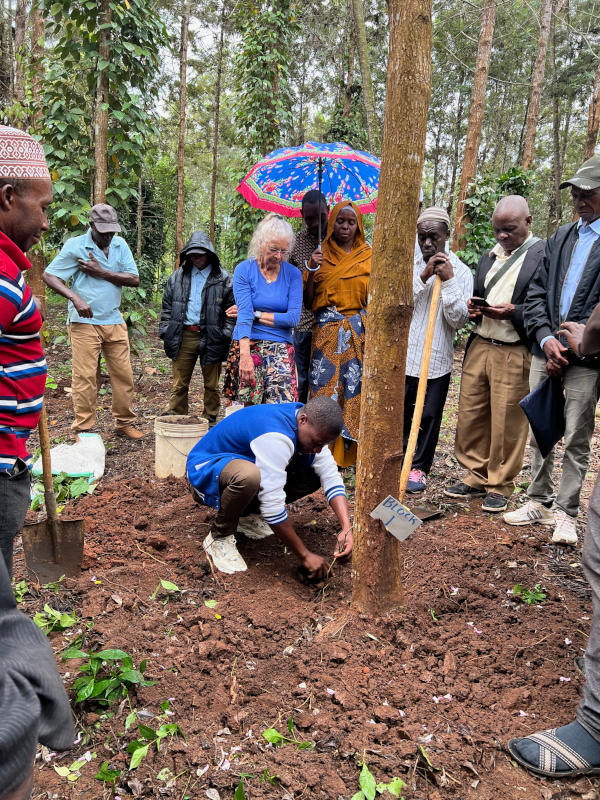
Research and Development
GFP has a demonstration site at Kwemhosi village in Muheza district where smallholder farmers visit to learn organic farming procedures. At the demonstration site, spice farmers mostly learn procedures to prepare and manage spice nurseries composting, vermiposting, testing of new planting materials, effective pest and disease control measures, among other topics. Local and international experts also visit the demonstration site to conduct research and share experience with spice farmers on different matters related to the spice value chain. The demonstration site, GFP office, processing facility, and warehouse are altogether located in 20 acres owned and managed by GFP.
At GFP, we invite experts from across the world and disciplines to work with smallholder farmers in East Usambara Mountains and support them to address various challenges facing various segments of the spice value chain.
Sustainability
From its experience, GFP has realized that spice farming is among sustainable socio-economic activities and livelihood options that likely to employ are majority of people, including women and youth in East Usambara Mountains.
Globally, East Usambara Mountains are among the remaining few areas in the world that contain high biodiversity of flora and fauna -part of the Eastern Afromontane Biodiversity Hotspot. Some trees, birds, amphibians, and reptiles are only found in the East Usambara Mountains and not anywhere else in the world. Promoting organic farming practices in the East Usambara Mountains contributes to global efforts to secure, protect and sustain the remaining global biodiversity.
By using the climate mitigation lens, you will note that the forest cover in the East Usambara Mountains is part of the remaining global carbon sinks and supporting global efforts in climate change mitigation and adaptation. The efforts also contribute to Global Biodiversity Vision- 2050 with theme on the ‘living in harmony in nature’.
Social Impact
GFP connects smallholder spice farmers to international markets for creating social impacts. At GFP we always believe that spice farmers deserve decent lives. Spice smallholder farmers produce high value spice products, but have over the been exploited by spot market traders offering low prices and no guaranteed lucrative markets. Some of the high value spices are black and white pepper, cardamom, cloves, cinnamon, ginger, turmeric, lemongrass and citrus (lemons/oranges). Unreliable markets created a situation where smallholder farmers had no incentive to grow high quality spices. As a result, potentials for most crops to attract and guarantee extra value addition was not realized. Low quality production mainly disadvantaged farmers as opposed compared to traders.
GFP has been able to put into place structures and practices that counteract the negative trading practices that have been dominant in the Usambara Mountains. Through capacity building programs, GFP has been supporting trainings on sustainable organic farming best practices in accordance with organic production guidelines. GFP has also established transparent trade relationships with farmers while also making spice farming attractive by offering competitive prices with a guaranteed market for both matured and young farmers. Generally, GFP has managed to bring the processing of spice products and the preparation for export closer to the farmers. GFP has also built processing and storage facilities in a village located in the middle of the production area. The whole process of buying, processing, and transporting spice products is visible. Smallholder spice farmers in East Usambara feel included in the entire processing and export negotiating processes. After exporting the crops, smallholderfarmers also receive a bonus, which consists of an organic premium and a second payment for motivation. A pre-payment plan is also made available by request of the farmer earlier in the season. The pre-payment plan empowers smallholder farmers financially because they are able to cater to their daily family needs.
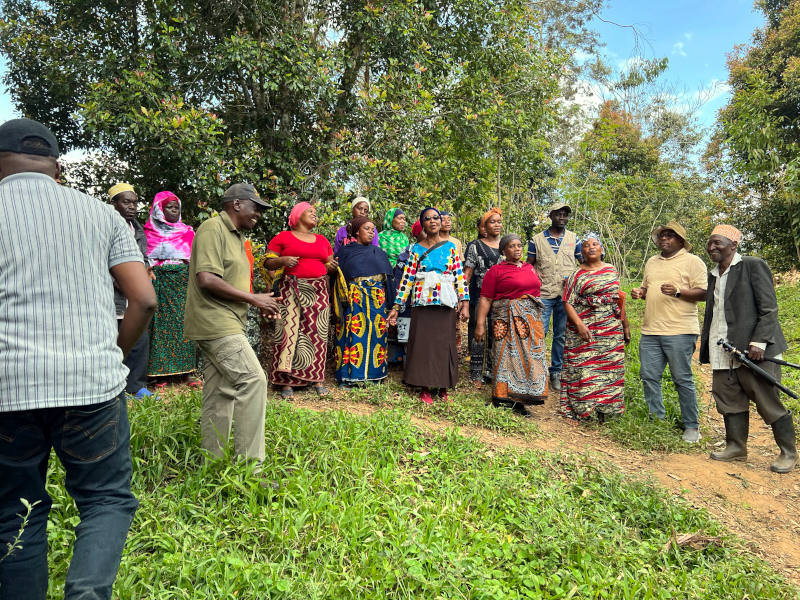
GFP continues to put deliberate efforts that result into building strong relationships in the farmers’ communities. Some staff members of GFP reside in the village. GFP Director also spends a lot of time in the production area and is well known by the farmers. GFP supports some village activities, such as sponsoring youth football competition, which is a unique opportunity to meet farmers and talk about the process and importance of organic farming before the match. GFP has also been building local school toilets, drilling and installing a water supply system in the central village, purchase of biological inputs, facilitating public awareness about COVID 19 etc.
To compliment the on the ground activities, long term market linkages have been established with international markets. International spice buyers are also interested in the source of the produce and hence pay visits to the production area and the farmers. During those visits they stay overnight in the village among the farmers, which builds a relationship between buyers and farmers. This empowers the farmers further as the feel connected to the global spice industry. The feeling of connection to the world is an important motivation for both old and young farmers to pursue further the production, processing and sale of spices.
Community Engagement
GFP supports some community projects, such as village office construction, local school toilets, drilled and installed a water supply system in one of the villages and initiated the youths football competition where before football matches GFP staff talk with the players on organic spice farming.
Our Organic Products
-

The processing of quality black pepper contains many steps highly depending on pre-drying treatme...
-

Green and White
Handpicked cardamom pods dried in a mechanical dryer for green /yellow mi...
-

(Chips/Crushed Cinnamon Bark)
This tree is native to Sri Lanka, Seychelles and Madagascar. ...
-

Handpicked fresh-ripen oranges. We transport the oranges to our central processing facility to un...
-

Small holder farmers handpick the ripe clove when the calyx turns from olive green to yellow with...
-

Turmeric (Curcuma longa) is a rhizomatous herbaceous plant of the ginger family, Zingiberaceae. I...
-

It takes about 10 months to remain in the field and start showing withering signs from the 8th mo...
-

Lemongrass, a perennial herb with long, sharp-edged blades. The fresh stalks and leaves have a cl...
-

Peppercorns are mature dried berries of the woody perennial evergreen climbing vine, Piper nigram...
-

Handpicked fresh-ripen lemons. We transport the lemons to our central processing facility to unde...
